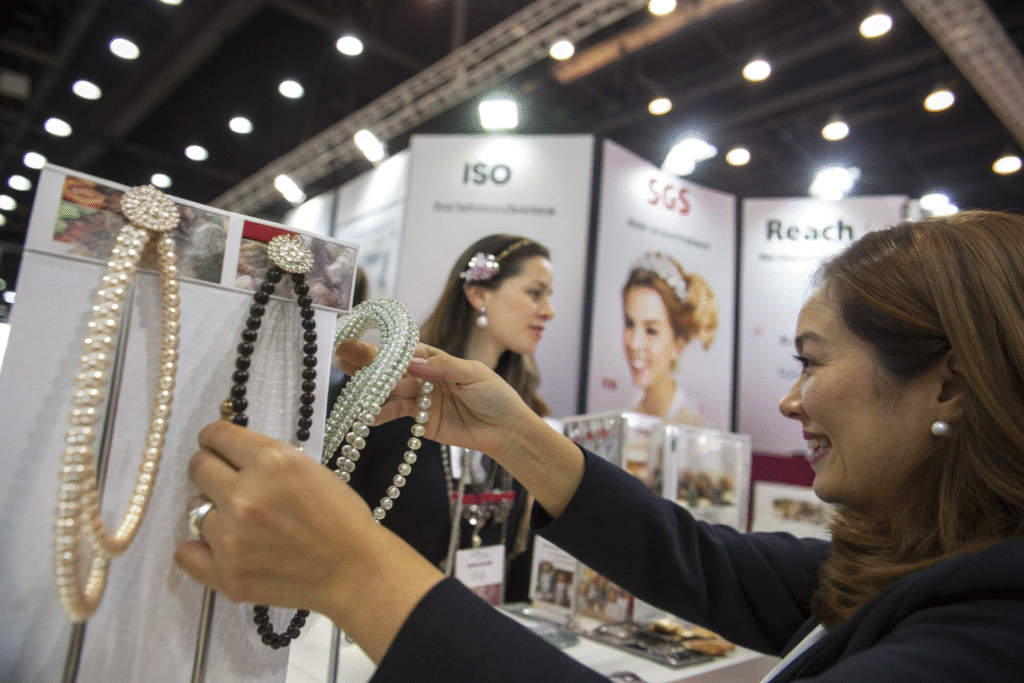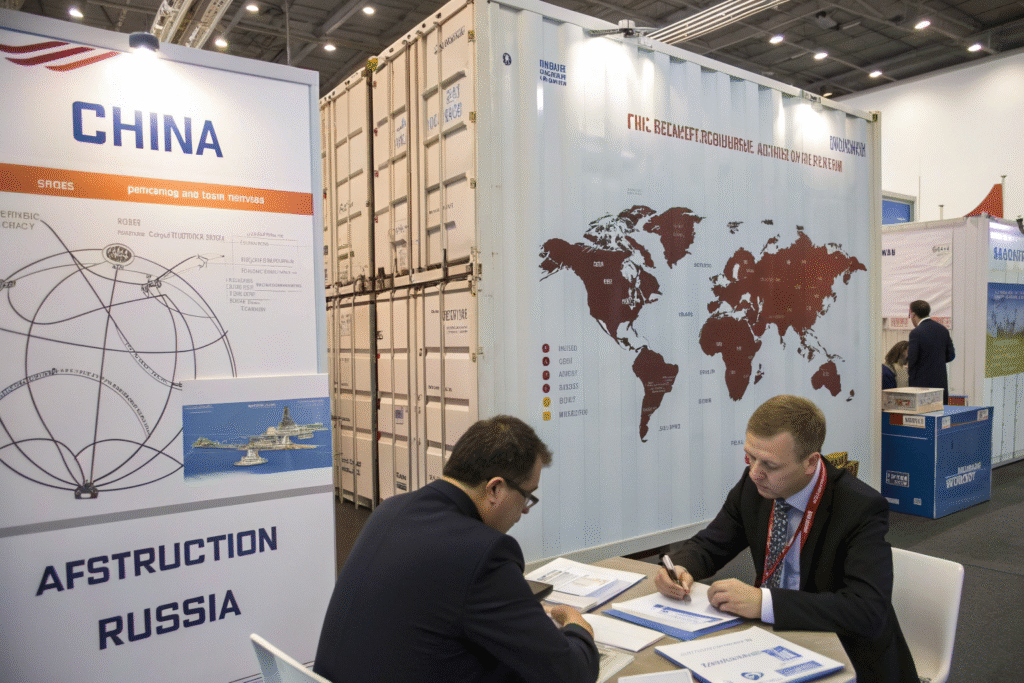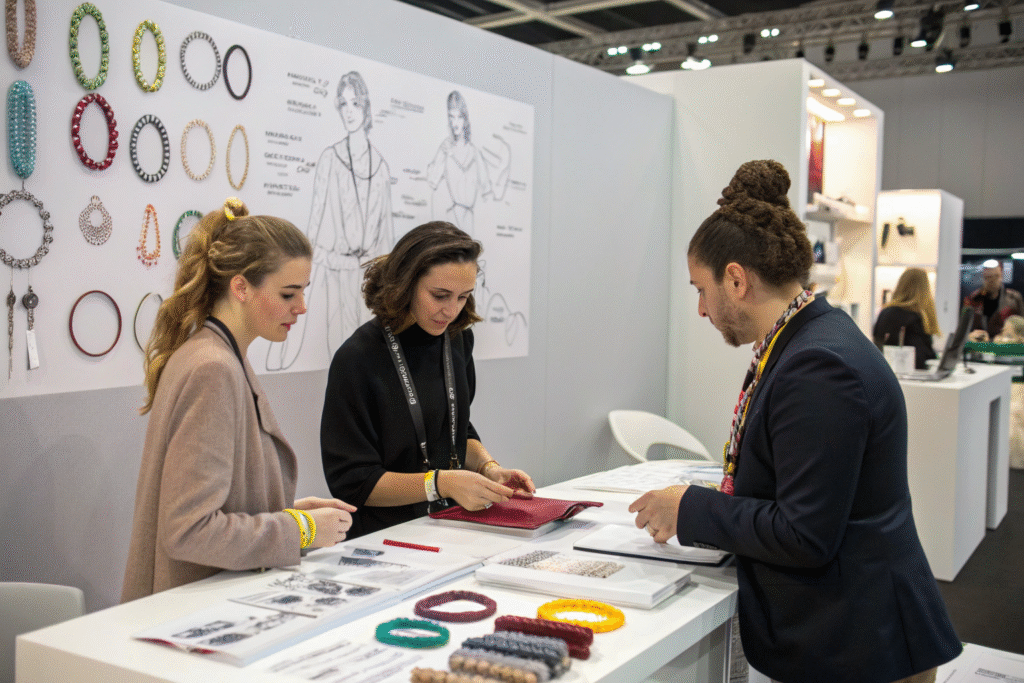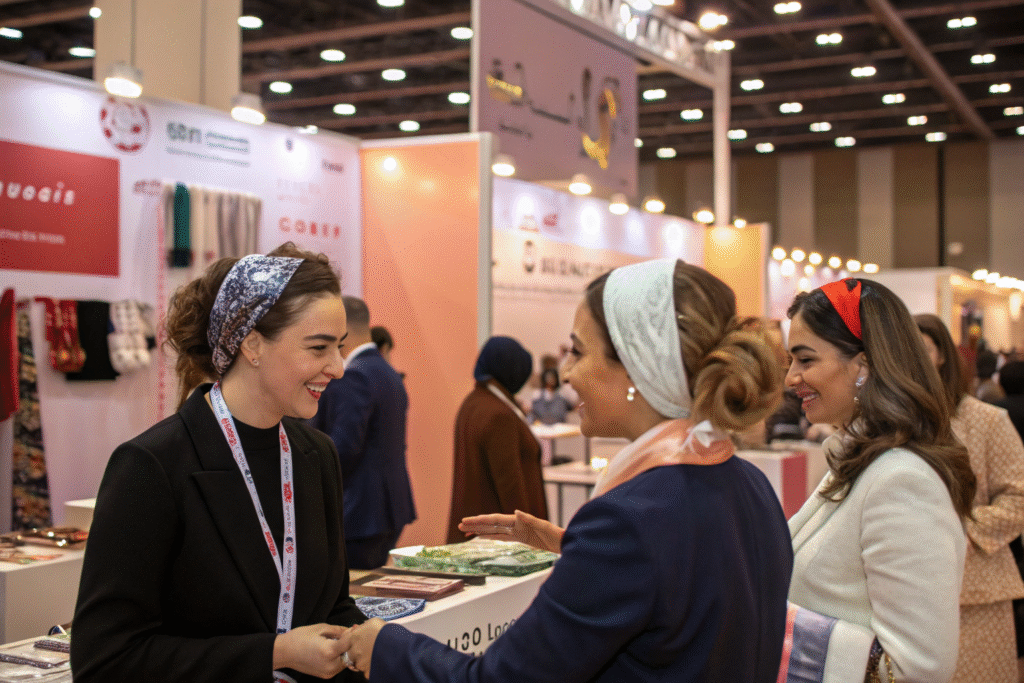Finding the right hair accessory supplier at a trade show can be overwhelming. With hundreds of booths, glossy catalogs, and salespeople promising the moon, it’s easy to get dazzled. But the truth is, not every supplier delivers on their promises, and a wrong choice can cost you money, time, and customer trust.
The best suppliers stand out with clear indicators—transparent quality control, proven export experience, strong communication, and flexibility in product development. By learning these markers, you can save yourself from costly mistakes and ensure your fashion accessory line thrives.
That’s why I’ve put together this guide based on my years in the hair accessories manufacturing industry. Whether you’re sourcing for a major fashion brand or running your own boutique store, these tips will help you spot the right partners on the trade show floor.
Quality Standards and Certifications You Should Expect
When walking the aisles of an accessory trade show, you’ll see countless products that look appealing at first glance. But looks can be deceiving. Many new buyers make the mistake of judging quality only by visual appeal.
The most reliable suppliers can show you proof of quality—with actual certifications, factory audits, and testing reports. It’s not just about having a shiny display; it’s about having a consistent manufacturing process that meets global standards.

If a supplier is truly confident in their product, they will have no problem sharing documentation. From my experience, suppliers that invest in certification also invest in better raw materials, skilled workers, and robust quality control.
How Can Certifications Impact Your Business?
A valid certification such as ISO 9001 or SGS product testing is not just a piece of paper—it’s your guarantee that the production process is standardized. This means fewer defective products, fewer customer complaints, and better online reviews.
Certifications also make it easier to clear customs in strict regions like the EU and the USA. If you sell on platforms such as Amazon or supply to large retailers, having certified products is often a requirement, not an option.
What Quality Control Questions Should You Ask?
At the booth, ask about their incoming material inspections, in-line quality checks, and final product testing. A supplier who can show you a sample inspection report or let you view a live QC process video will usually have better production discipline.
Also, don’t forget to ask about their REACH compliance if you’re selling in Europe—this protects your customers and your brand.
Proven Export and Logistics Experience
Even the highest quality product is useless if it doesn’t reach you on time or gets stuck at customs. That’s why export experience is a major indicator of a reliable supplier.
Reliable suppliers can clearly explain their logistics process, shipping options, and delivery timelines—because they’ve done it successfully for years, not just a few orders.

I’ve seen buyers lose entire seasons because their suppliers underestimated freight schedules or forgot about holiday port closures. This is why you should never leave logistics planning as an afterthought.
How Do You Verify Their Export Record?
Ask for their past shipping documents—things like Bill of Lading copies or customs clearance records. These prove that they have actually shipped to your region before.
Suppliers experienced in exporting to the USA, EU, or Russia will already know the paperwork and regulations, saving you headaches.
What Shipping Flexibility Should You Expect?
A seasoned supplier will offer multiple Incoterms (like FOB, CIF, DDP) and work with different shipping partners to adapt to your needs. They should also be transparent about potential port congestion or seasonal freight surcharges so you can plan inventory better.
Strong Communication and After-Sales Support
You can usually tell within minutes whether a supplier will be easy to work with. If they’re attentive, answer questions clearly, and follow up promptly after the show, they’re more likely to handle your orders well.
Good communication is a leading indicator of long-term success in supplier relationships. This includes language skills, responsiveness, and a structured after-sales support system.

From my perspective, a supplier that treats you with respect before the deal will also respect your deadlines and brand requirements after the deal.
How Can You Test Communication at the Show?
Send a follow-up email or message during the trade show. See how fast they reply and whether they provide relevant, complete answers. If a supplier takes three days to respond when you’re about to place a big order, that’s a red flag.
Also check if they have multilingual support—especially if you work across multiple markets.
What Should After-Sales Support Include?
After-sales service should go beyond fixing defects. A good supplier will help with spare parts or replacements if needed, provide updated catalogs, and alert you to new designs that might fit your market. They might even help you with marketing material.
Product Development and Customization Capabilities
In a fashion-driven industry like hair accessories, your competitive edge often comes from unique designs and customization. This is where the best suppliers shine.
A reliable supplier should be able to develop new products based on your ideas—offering material selection, sampling, and even custom packaging.

I’ve worked with clients who doubled their sales simply by launching an exclusive collection. This would not have been possible without a supplier skilled in OEM (Original Equipment Manufacturing).
How Do You Evaluate Their Design Skills?
Look for a portfolio of past projects and ask about their sampling speed. A supplier who can deliver a prototype in 7–10 days is usually better equipped to respond to trends quickly.
Also, find out if they can match Pantone colors for your brand’s identity.
What Customization Options Should You Demand?
Ask about custom molds, embroidery, printing, and special packaging. A full-service supplier should guide you through each step—from concept sketch to final shipment—ensuring the finished product aligns perfectly with your target market.
Conclusion
Reliable hair accessory trade show suppliers are not just about pretty products. They stand out through certified quality, proven export logistics, strong communication, and real customization capabilities. By focusing on these key indicators, you can secure partnerships that help your business grow instead of drain your resources.
If you’re ready to develop your own exclusive hair accessory line with a manufacturer that meets all these standards, contact our Business Director Elaine at elaine@fumaoclothing.com and let’s start creating something that your customers will love.









